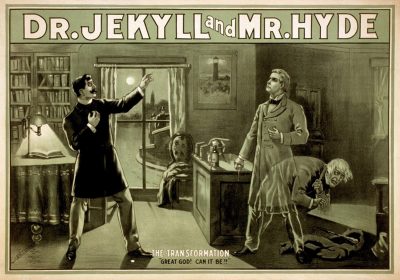FYSM 1405B: Sexuality in Victorian London
Fall 2024-Winter 2025
Instructor: Professor Danielle Kinsey
Course Description: Popular ideas about the Victorian period (say, between the years 1837 and 1901) tend to imagine the Victorians as uptight prudes who hated all things sexual and would avoid the topic at all costs. But if you scratch the surface of this stereotype, you begin to see how many Victorians were absolutely obsessed with sex – not just in terms of who was doing what with whom and how, but in thinking about people as having sets of sexual desires as part of their innate identarian makeup. As having “sexuality,” in other words. Part of this obsession was about defining how different sexual identities intersected with other socio-cultural categories about difference that also invigorated the time period, particularly class, gender, race, ethnicity, religion, and criminality. While we can study how ideas about sex and sexuality in the modern period operated across the British Isles and the British empire as a whole, the idea of the big city, and of London, England, particularly, as a preeminent space of sexuality, expression, and danger dominated the nineteenth century. In this class, we’ll study how ideas about sexuality and the city of London were at the center of Victorian politics, society, and, even, economy, and how they changed over time. Among other things, we’ll discuss ideas about sexuality and imperialism, class difference, queer cultures in London, the rise of sexology, the Contagious Diseases Acts, the Jack the Ripper murders, and the trial of Oscar Wilde.
But this isn’t just a Victorian history course. As a first year seminar, this course is designed to introduce students to university-level skills in the Faculty of Arts and Social Sciences as a whole. We’ll discuss how to carry out research in the library (both in person and online), how to closely analyze primary and secondary sources, how to craft arguments and support them with evidence, how to cite information and maintain the standards of academic integrity, how to engage in peer review, how to analyze our own popular culture, and how to give effective presentations in class. We will also be discussing how to “do history” – as in, how to approach history as an academic discipline with specific methodologies. As a discipline, history has many subfields that inform how and what we study in the past and this course will be an introduction to some of them including Marxism, feminism, queer histories, postmodernism, post- and decolonial histories, the history of the senses, history of emotions, history of the body, public history, and critical race theory. Always, we’ll be talking about the challenges and politics that exist in how we “do history” and why history matters to the world of today.
Format: This is a 1.0 credit full-year seminar of about 30 students (or less) that will meet in person twice a week. Students will be expected to attend and participate in all classes.
Evaluation: Participation in small and large group discussions will be important for students looking to do well in this class. Beyond that, small quizzes on readings and lectures, grammar lessons, library assignments, and short to medium length writing exercises will be completed on a regular basis. In the Winter term, students will complete an oral presentation to the class and an original research project on a topic of their choice. That research project could eventuate in a traditional essay or a creative written, visual, musical, digital, fashion, or dance project of some kind.
Readings: Readings for this course have not been set but may include selections from:
Friedrich Engels, The Condition of the Working Class in England
Hallie Rubenhold, The Five: The Untold Lives of the Women Killed by Jack the Ripper
Sukhdev Sandhu, London Calling: How Black and Asian Writers Imagined a City
Robert Louis Stevenson, The Strange Case of Dr Jekyll and Mr Hyde
Coll Thrush, Indigenous London: Native Travelers at the Heart of Empire
Matt Cook, London and the Culture of Homosexuality
